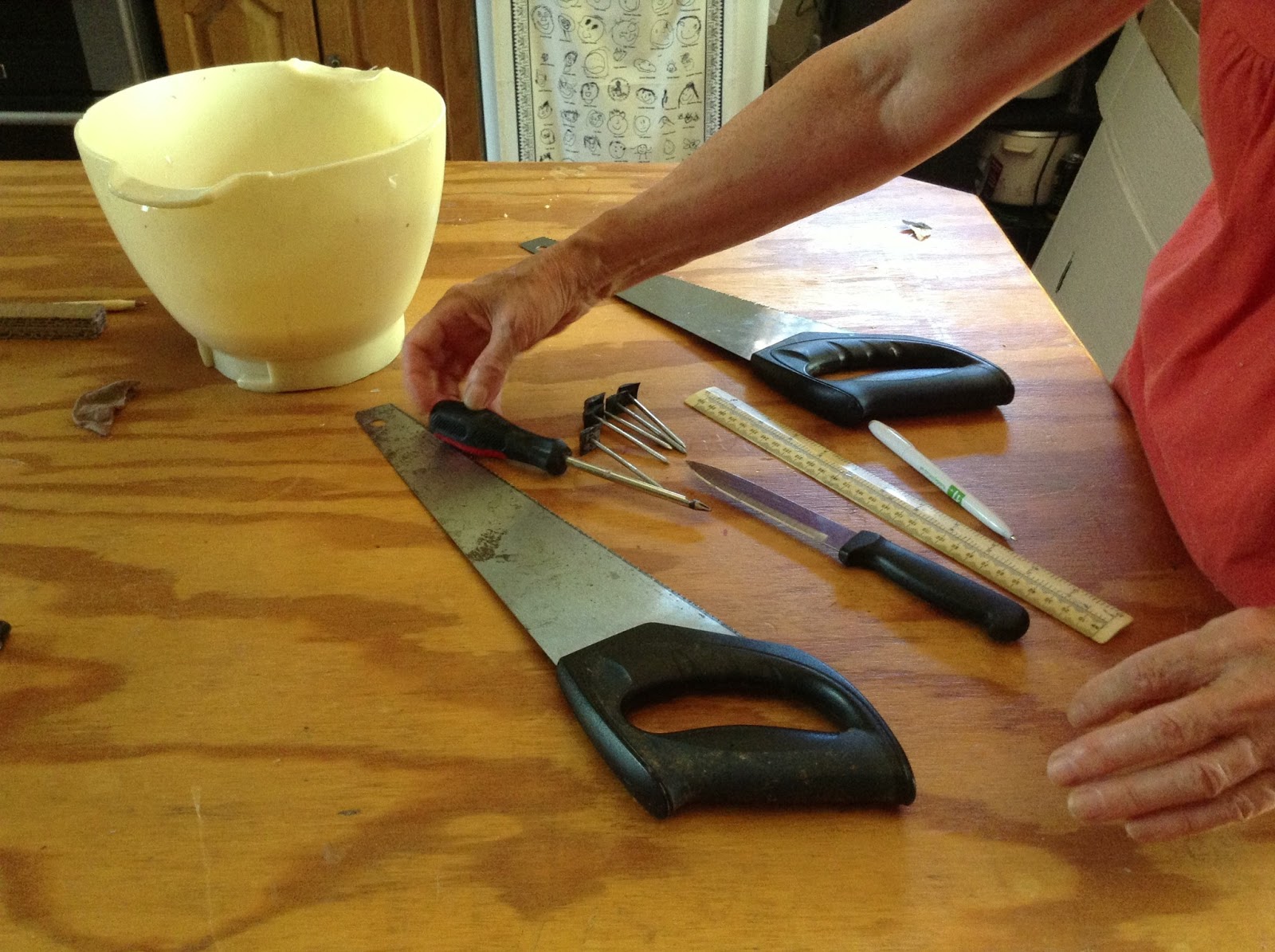 |
| APT chair with insert |
 |
| APT Walker |
There are multiple advantages to using APT. First the raw materials such as cardboard are available and free (or very low cost) in Ghana. The tools needed to make the equipment are not expensive; most APT can be made using a kitchen knife. As noted by People Potential (2013) advantages of APT go beyond the lower cost; “the advantages include the versatility as unusual shapes and designs can be made according to the needs of the child, the measurements and the impairment”.
 |
| Saw, ruler, knife, roofing nails, bowl |
 |
| Flour and Water make Paste |
Daniel and I took this course together and thoroughly enjoyed our time out on the English countryside with Jean, Ken, Dena, Catherine, and Flynn the dog (also a huge thank you to Richard for building the riding platform for my horse, see pictures below!). While I still need to practice my APT skills (and work on becoming more precise with my measurements no eye-balling allowed!), I feel confident that this new skill set will be put to use soon as I continue to work with children in Ghana and provide learning opportunities for VCU students. Here are a few pictures from our trip:
 |
| Daniel with APT Toy |
 |
| Daniel and Richard- Day 4, Horse has Wheels |
 |
| APT sofa |
 |
| APT double bed I slept in |
 |
| Me with Horse Frame made on Day 2 |


No comments:
Post a Comment